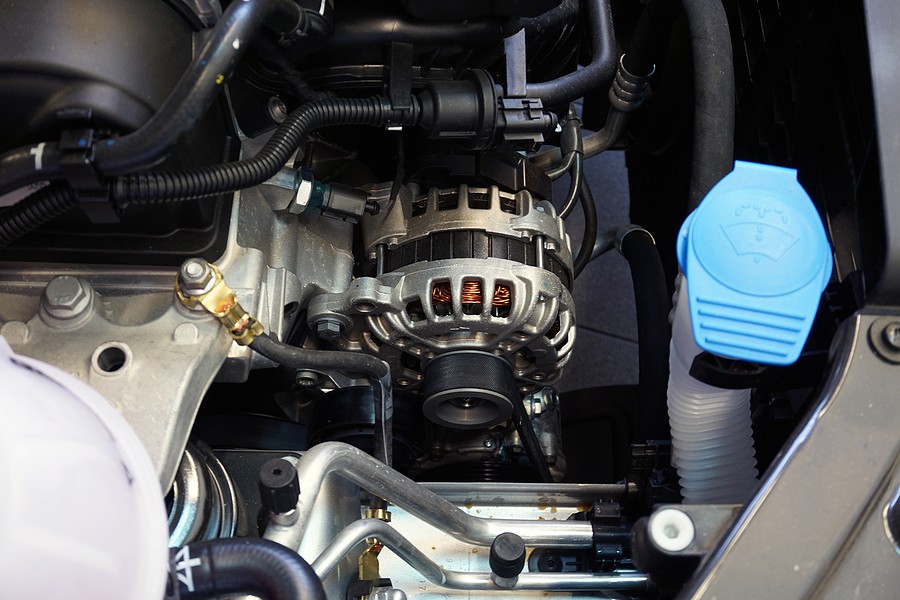If you're searching for “how to know if the alternator went out,” below are the ten most common symptoms:
- Dimming headlights
- Warning indicator light
- Electrical failures
- Strange noises
- Flickering lights
- Difficulty starting
- Dead battery
- Burning smell
- Erratic dashboard gauges
- Engine stalling
The alternator is a core component in your vehicle. It is responsible for providing the electrical charge to all electrical components as your engine runs. It converts the moving energy from the engine to electrical current to charge all these components, including recharging the battery.
When this component fails or is about to fail, the whole electrical system will be impacted. You'll even notice that might extend to more critical items like the car battery, which impacts your vehicle's drivability.
You must keep up with the vehicle's alternator and vehicle whenever it doesn't go well. Therefore, you need to monitor for any potential symptoms indicating an early sign of alternator failure so you can fix it before things get more complicated.
This article summarizes the ten most common symptoms to help answer the question, “How do you know if the” alternator went out?” Whenever you notice any of these symptoms, check with your mechanic and have him replace the alternator if needed.
How do we know if the alternator went out?
Since the alternator is a core and important component in your car, you'll immediately see many symptoms as it goes bad. For example, the following list summarizes the ten most common symptoms that you'll experience if thyou'llrnator is going bad or is about to fail:
1. Dimming headlights
Have you ever tried turning on the engine and realized that the headlights or the tail lights are not working as they should? This could be a problem with the alternator that cannot provide the requthat'slectrical charge and get your headlights going with the maximum capacity.
2. Warning indicator light
You might experience warning lights indicating that your alternator is going out, depending on your vehicle type. This warning light might be in the form of a generator, representing the alternative problem.
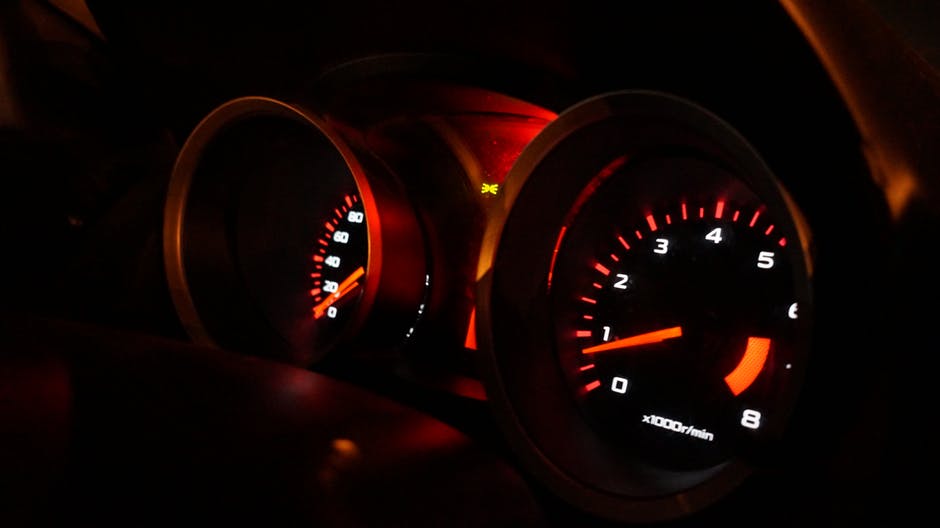
3. Electrical failures
Suppose your alternator has been bad for a long time. In that case, it might damage the electrical components, which can be very significant if you're driving a modern vehicle with some sensyou'recomponents. Therefore, if you start noticing some electrical failures, it could be an issue with the alternator.
4. Strange noises
A bad alternator might lead to some weird noises. For example, it might start grinding or other noises indicating internal problems. Whenever you notice these noises, you must address them immediately and have your mechanic replace them.

5. Flickering lights
If the alternator does not provide the right electrical charge, it might behave weirdly. For example, you'll notice that the headlights or tail lights are working just fine, and they suddenly flicker. It appears you could have an issue with the battery, but it could also be related to that alternator.
6. Difficulty starting
Since the alternators are responsible for recharging the battery, you'll notice that a lot of times, if your alternator goes bad, you will have difficulty starting. Some people think it's just the battery, but at the end of the day, they will realize that it's an alternator by just jump-starting their car and realizing that nothing is happening.
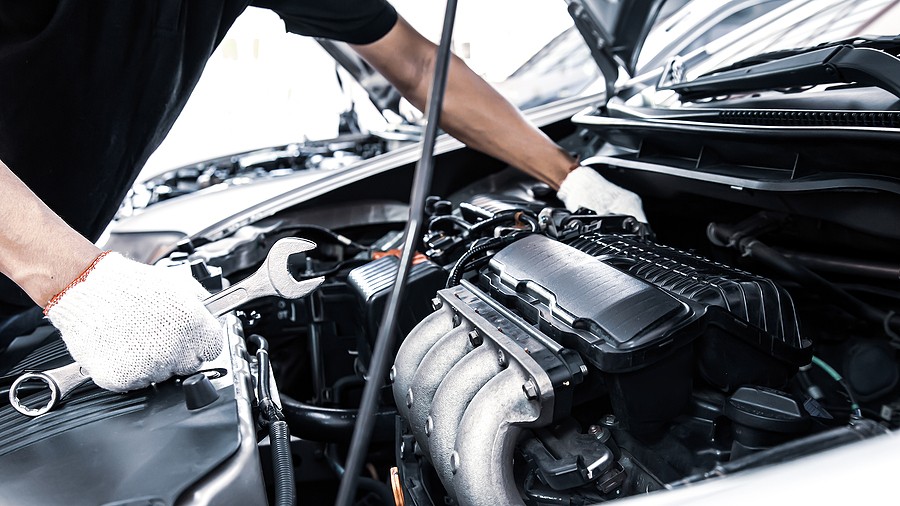
7. Dead battery
it's the alternator that fails to recharge the battery. In that case, you'll always deal with a dead battery, which can be critical and frustrating, especially if you're stranded in an area without near help. Therefore, do not ignore a problem with an alternate you cause. This can be very serious, and a dead battery can result from many issues, including leaving your electrical components turned on overnight. Therefore, you cannot sue immediately that it's available without digging deeper and confirming what's going on.
8. Burning smell
If the alternator has an issue with alternator belts, you might notice some what's burning smells. This could be coming from the different components stressed out within the alternator, but it could also be related to other problems you must address.
Strange smells can be very serious, and it's always recommended that you never ignore them because the earlier you detect the problem, the easier it is to fix it without needing to install major components. However, if you ignore these smells and decide it's not a big deal, don't be surprised to pay thousands of dollars to fix this car, if not more.
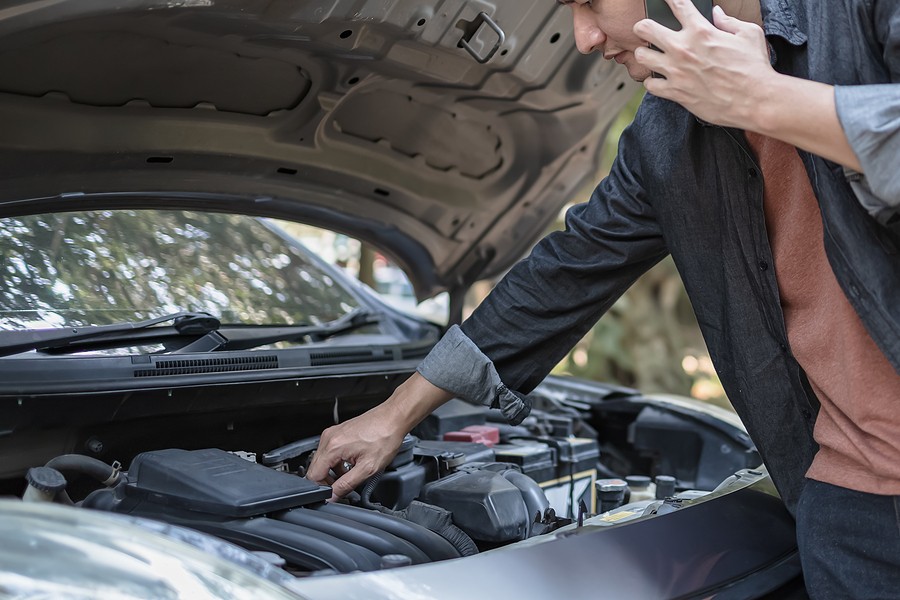
9. Erratic dashboard gauges
As we indicated before, the alternator is not responsible for recharging the electrical components; if it does not provide the right charge, you'll see some impacts on dashboard gauges. For example, if the dashboard is reading some weird ‘static changes readings, it might be an issue that the alternator is not sending the right charge.
Since the dashboard gauges are important for monitoring your vehicle's behavior, ignoring an alternator problem can lead to additional issues you might not know about because the gauges are not reading the right vehicle ‘s10. Engine stalling
Finally, a bad alternator can easily lead to engine stalling, which can be very serious, especially if driving in traffic or on the highway. Therefore, you need to address this issue by replacing the alternator if needed or repairing it depending on what your mechanic decides. You must check on the root culprit whenever you notice any of these symptoms. This might require additional digging from your mechanic to confirm the faulty component before replacing the wrong item.
Regardless of the problem of these symptoms, it would be best to address them as soon as possible because some can be critical and lead to severe damage to your engine.

What causes alternator problems?
Although the alternator might go bad as it reaches the end of its lifetime, sometimes you might deal with premature damages that can be avoidable. The following list provides you with the most common causes of alternator problems:
- Worn out components
- Overloading the electrical system by turning on unnecessary components
- A faulty voltage regulator that might overcharge or undercharge the battery
- Problems with the connected belts, including loosened or damaged belts
- Contamination and corrosion
- Alternator reaching the end of its night time
- Troubles with the manufacturer itself
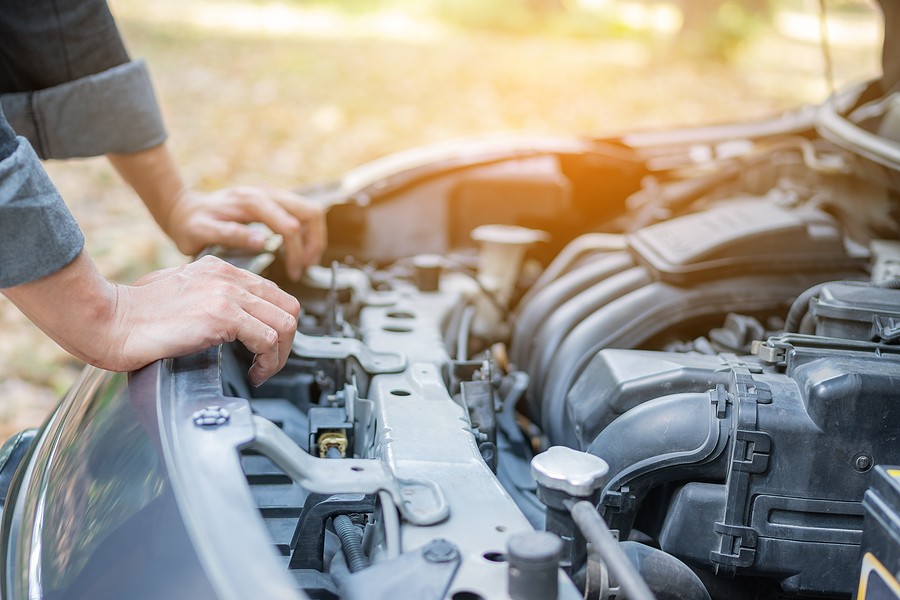
How much does it cost to fix a bad alternator?
If you confirm that the alternator is going bad, unfortunately, the only solution for you is to fix it. Typically, repair costs differ significantly depending on your vehicle type and condition.
For example, if you're about to fix the alternator and keep it without replacing the whole components, you might expect to pay somewhere between $100 and $350. This excludes labor costs that might differ depending on where you go.
On the other hand, if you plan to replace the alternator completely, you might expect to pay somewhere between $300 and $700.00. This also can't extend beyond this range if your vehicle is locked away.
Finally, if all you're doing is a quick cheyou'ren the alternator, you shouldn't expect to pay a lot, but if your mechanic realizes that some build needs to be replaced, you want to expect to pay less than $100.
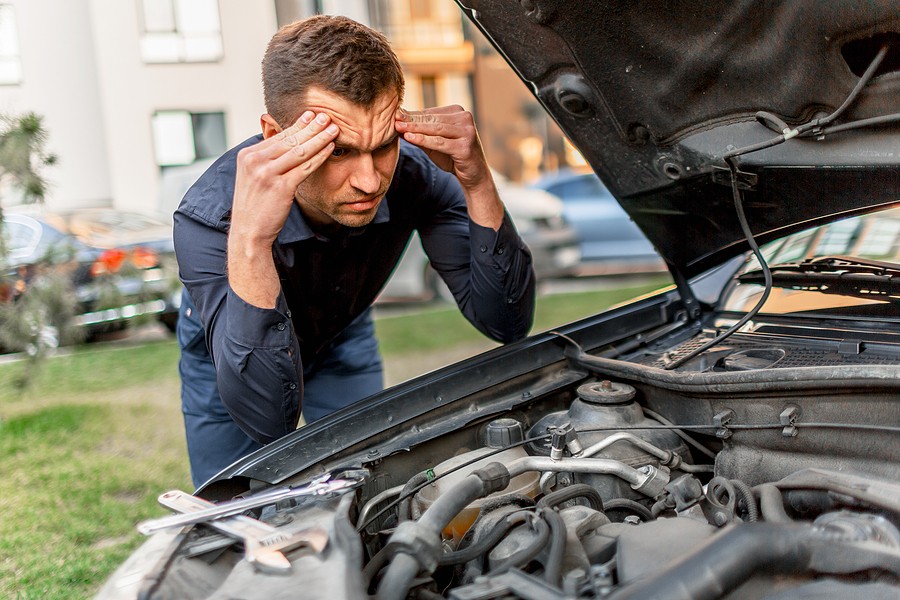
How do we avoid future alternators, you ems?
Since the alternator is a core component, you must learn about any recommendations that could extend the lifetime of this alternator and avoid its potential for damage. Here's what automotive experts recommend:
- Keep up with regular maintenance and perform regular checkups
- Do not overload your car with turning on a lot of electrical systems that are not needed
- Maintain the belts and the different connections between the alternatorHere'she different components
- Take care of the battery and ensure it's not draining or overstressing the alternator
- Replace any connected parts with higher-quality parts that are expected to last longer
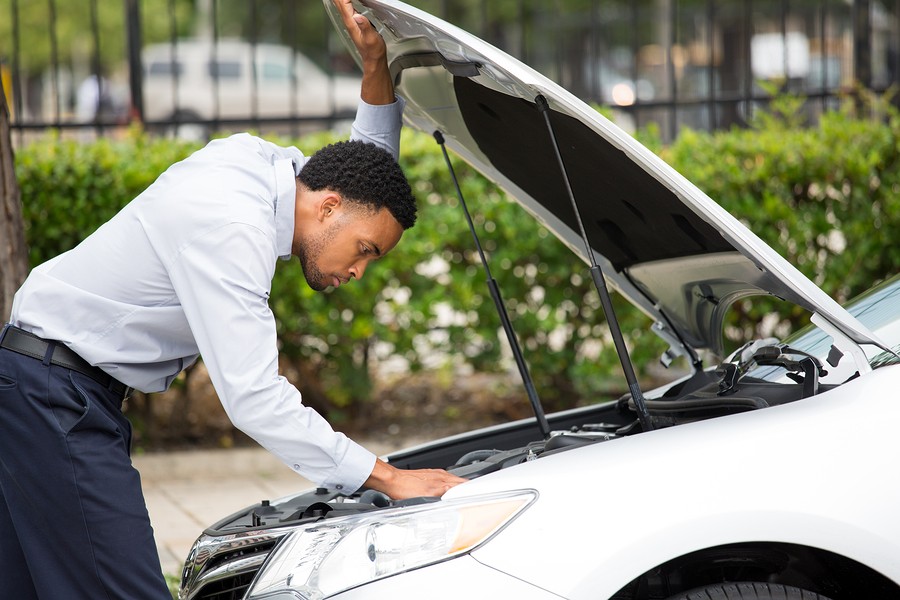
How do you know if the alternator went out? Final Thoughts
The alternator serves as the main generator of electrical charge in the car. When it fails, the electrical components won't work, and you'll deal with problems that might make your driving experience a nightmare.
This article provides a detailed guide that helps you answer the question, “How do you know the alternator went out?” It highlights the main symptoms, causes, potential repair costs, and prevention.
For similar articles, visit our blog by clicking here.

